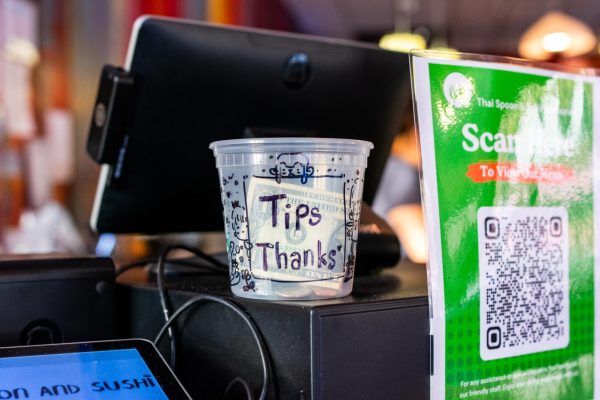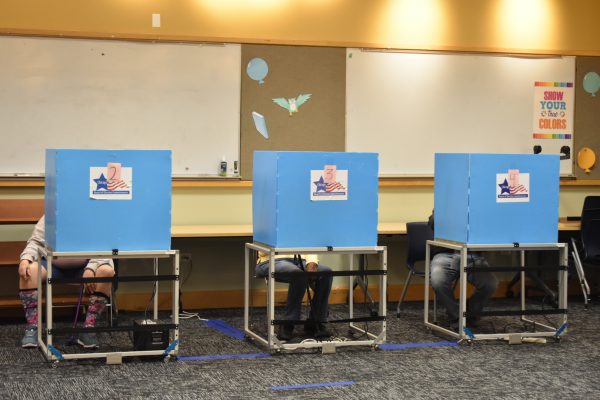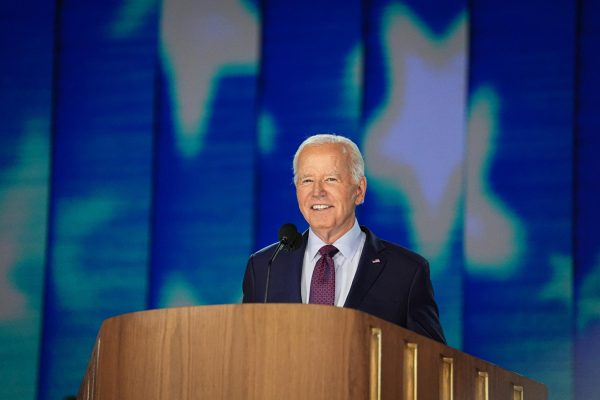Donations low in struggling economy
December 8, 2008
The first week of every month for the past 10 years, Patrick Wilger, a 53-year-old maintenance worker, has biked almost four miles to receive donated food to feed him for the month. Lately, however, portions are becoming scarce, leaving him to look for his next meal at homeless shelters.
With the economy on a downhill slide, many families are turning to local community organizations for help, but these locally funded organizations are also tightening their belts to feed everyone who is in need.
Together We Cope (TWC) is a nonprofit organization based in Tinley Park, Ill., providing financial support, as well as food and shelter, to low income families, or families dealing with illness and tragedy. Although this time of year has always been exceptionally busy, this year is like no other the group has seen, said TWC receptionist Cindy Beneventi.
TWC started in 1982 in the garage of a Tinley Park, Ill., resident and expanded to what it is today. Originally founded to aid families and individuals affected by the closing of steel mills and General Motors Plant, they were able to quickly grow into the storefront building standing at 17010 S. Oak Park Ave., in Tinley Park, Ill.
“It’s been nuts here,” Beneventi said. “There have been so many people [in the Chicagoland area] who’ve gotten their hours cut and are now homeless because they’ve been evicted.”
Beneventi has worked at TWC for 10 years and said the organization aims to prevent homelessness in Chicago’s south suburbs. However, with the 8,800 people, which includes 50 families, who have come through this year, the organization’s resources are running thin.
“We recently got a new director, and she’s gotten local schools, churches and other organizations to help us with donations,” Beneventi said. “But there is still a three- week waiting list.”
TWC provides financial aid for one month for either rent or utilities, as well as offers clothing and food vouchers for people to pick up donated items at the facility. One condition that borrowers must adhere to is agreeing to not only state their means of paying the money back, but by following through with that plan. Funds are dwindling because more and more people are requesting assistance but don’t have the means to pay it back.
“I see things getting worse before they get better,” Beneventi said.
TWC is the only organization in the Chicagoland area that helps low-income and homeless people with financial support, food and clothing, but their services only span as far as 183rd Street to 87th Street and from Western Avenue to Will Cook Road. The donated food comes from the Greater Chicago Food Depository, and even it has felt the strain from the overwhelming demand for donations, officials said.
“We’ve definitely been backed up with requests this year, more so during this holiday season,” said Meaghan Farno, public relations coordinator for Greater Chicago Food Depository (GCFD), a nonprofit food bank that provides donated food to the hungry throughout the area.
Farno said even though the food depository sent an extra six mobile pantry distributions to the south suburbs and the West Side of Chicago during the week of Thanksgiving, they need more donations.
“We distributed an extra 2,400 pounds of food during the three days before Thanksgiving,” Farno said. “That’s a 40 percent increase from last year.”
The number of families in need of assistance rose 33 percent since last year across Cook County, including a 50 to 90 percent increase in the suburbs, Farno said.
“The food was skimpy this time around, the lowest I’ve ever seen, with only a bag-and-a-half of food,” Wilger said. “Years ago, we used to get three or four bags.”
With nowhere else to turn, Wilger said he still plans to make his monthly trips from Oak Forest to Tinley Park to scrounge up whatever he can get.
“Half a loaf is better than none,” Wilger said.







